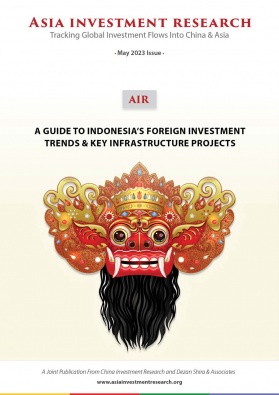ASEAN to Increase Local Currency Trade, Reducing Reliance on the US Dollar
ASEAN members have agreed to increase the use of local currency transactions and push for a better regional payment connectivity, in a move that could be seen as a continuing shift in de-dollarization in the region.
At the 42nd ASEAN Summit, held in Labuan Bajo, Indonesia, ASEAN members signed an agreement to push for better regional payment connectivity and the use of local currency transactions (LCT). The move is seen as the bloc’s strategy to transition away from established currencies used for trade, such as the US dollar.
The US dollar has been king for global trade for decades. This is not only because the US is the world’s largest economy, but also because oil and most commodities are priced in US dollars. However, since the Federal Reserve embarked on its aggressive interest rate hike strategy, central banks of developing countries have been forced to raise their own interest rates to stem the sharp depreciation in their currencies.
To be clear, the US dollar is still the dominant currency among global forex reserves, accounting for some 58 percent of the reserves in the fourth quarter of 2022. The Euro is second and accounts for 20 percent of global forex reserves.
Through the local currency transaction initiative, ASEAN hopes to increase trade within the bloc, deepen regional financial integration, strengthen financial resilience, and bolster regional value chains. Finance Ministers will next develop an ASEAN Local Currency Transaction Framework to implement its LCT (LCT) plans. ASEAN accounts for about 7% of global GDP.
ASEAN is wary of the impact of sanctions
ASEAN members are also wary of the role the US dollar plays in sanctions brought on by the US. The US along with the EU froze some US$300 billion of Russia’s foreign reserves and cut its major banks from accessing the SWIFT network in a bid to cripple the Russian economy. As such, these sanctions have forced ASEAN countries to mitigate their risks and engage in diversifying their reserve currencies. Further, they are also wary that the US could use the power of its currency to target them in the future.
China has been getting rid of its US Treasury Bonds and now holds US$870 billion in US debt – the lowest since 2010. Iraq has now allowed trade with China to be settled with the yuan, and China and Saudi Arabia are considering pricing some oil sales in yuan. The central banks of Indonesia and South Korea have agreed to expand the use of each other’s local currency for bilateral transactions, in addition to India and the UAE also finalizing a deal to trade in their currencies.
ASEAN’s improving regional payment connectivity system
An initiative from ASEAN to improve its regional payment landscape has been the launch of the universal quick response (QR) code.
The central banks of the Philippines, Indonesia, Malaysia, Singapore, and Thailand have employed contactless QR code payment systems for goods and services between the countries and thus encouraging greater financial inclusion for consumers and MSMEs in the region.
This also means a transaction in Thailand using an Indonesian app will be paid through a direct exchange between the rupiah and the baht – bypassing the US dollar as an intermediary. Once the connection linkages have been completed, the central banks will seek to connect with other clusters around the world. The QR digital payment system is expected to be implemented among ASEAN members by September 2023.
Importantly, the initiative will encourage greater financial inclusion for the region’s unbanked and underbanked population. It is estimated that 50 percent of Southeast Asia’s population remains unbanked, meaning they do not have access to the most basic banking services. Further, for the region’s MSMEs – which account for 99 percent of all businesses – the use of QR payment systems will enable them to seize more market opportunities, in addition to investments to help them climb up the value chain.
However, despite the slow erosion of the US dollar’s dominance, analysts say the currency will not be dethroned in the short term, mainly because there are no real alternatives.
About Us
ASEAN Briefing is produced by Dezan Shira & Associates. The firm assists foreign investors throughout Asia and maintains offices throughout ASEAN, including in Singapore, Hanoi, Ho Chi Minh City, and Da Nang in Vietnam, in addition to Jakarta, in Indonesia. We also have partner firms in Malaysia, the Philippines, and Thailand as well as our practices in China and India. Please contact us at asean@dezshira.com or visit our website at www.dezshira.com.








